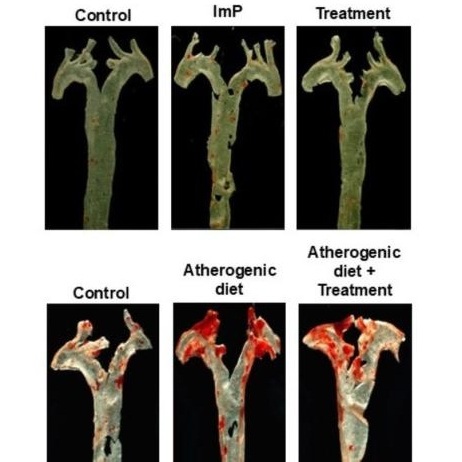Early Detection of Gut Microbiota Metabolite Linked to Atherosclerosis Could Revolutionize Diagnosis
Posted on 18 Jul 2025
Cardiovascular disease is the leading cause of death worldwide, and atherosclerosis plays a critical role in its development. This chronic condition, characterized by the hardening and narrowing of arteries due to the accumulation of fat deposits and inflammation, poses challenges in early detection. Clinical practice currently focuses on factors like cholesterol, hypertension, and smoking, but diagnosing atherosclerosis in its early stages remains difficult.
The issue is compounded by the reliance on advanced imaging techniques, which are complex, expensive, and not always covered by public health systems. Researchers have now discovered that a specific metabolite in the blood, Imidazole propionate (ImP), is linked to the early stages of active atherosclerosis, providing a potential diagnostic marker for detecting the disease in individuals who otherwise appear healthy.

In a new study, researchers from the Centro Nacional de Investigaciones Cardiovasculares (CNIC, Madrid, Spain) showed that ImP, a metabolite produced by intestinal bacteria, is elevated in individuals with atherosclerosis. Through extensive research, it was found that ImP not only serves as a marker for the disease but also plays a causal role in its development. In animal models, the administration of ImP resulted in the formation of arterial plaques by activating the imidazoline receptor type 1 (I1R), which triggers systemic inflammation and promotes atherosclerosis.
The research team also discovered that blocking the I1R receptor in mice fed a high-cholesterol diet slowed the progression of the disease, opening up new possibilities for treatment. These findings suggest that targeting ImP and I1R could be an effective strategy in preventing or treating atherosclerosis. The findings, published in Nature, support early detection of this metabolite in blood as a new diagnostic tool and open the door to personalized treatment strategies. Researchers are now working on developing drugs that block the detrimental effects of ImP, which could be combined with cholesterol-lowering drugs for a synergistic effect.
“These findings open new possibilities for the early detection and personalized treatment of atherosclerosis,” said David Sancho, head of the CNIC Immunobiology Laboratory and lead author on the study. “Instead of focusing solely on cholesterol and other classic risk factors, we may soon be able to analyze blood for ImP as an early warning signal.”
Related Links:
CNIC














